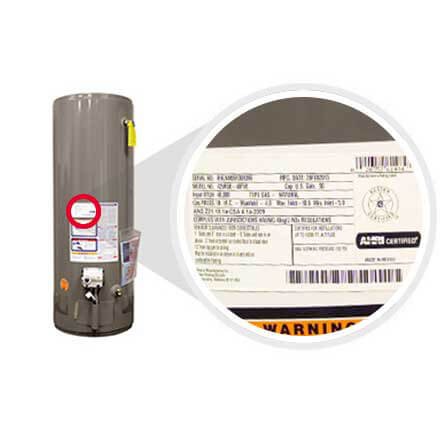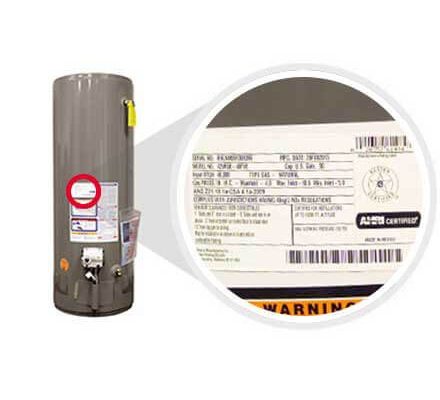
Let’s be honest, nobody gets excited about reading warranty paperwork. But you don’t want to be left with a cold shower and a burned-out heater, either. Whether you’re a DIY landlord, a homeowner on a budget, or just someone who hates waste, knowing if that used Rheem unit can be covered could make a huge difference. Let me walk you through how the warranty process actually works for used water heaters, where the line is drawn, and what your real options are.
How Rheem’s Water Heater Warranty Normally Works
Here’s the thing with most appliance warranties: they’re written with the original buyer in mind. Rheem, a big name in water heaters, is no exception. When you buy a brand-new Rheem water heater through an authorized seller, you get a manufacturer’s warranty that typically covers some mix of tank damage, component failures, and sometimes labor for a set number of years. But that coverage isn’t magic; it’s closely tied to who bought the unit and where it’s installed.
For new units, registering your water heater is straightforward. You go online or fill out a card, enter the serial number, installation date, and your personal details. Registering is important because it officially starts your warranty coverage. If you ever need to make a claim, Rheem can check their records and confirm you’re within the right time frame and ownership.
A key detail many people miss: the warranty often starts from the **date of installation**—not the date you register or buy it. So even if you wait a couple of months to register, your coverage is linked to when the heater hit your home’s pipes. Keep that in mind, because the clock starts ticking from that day, not whenever you finally get around to the paperwork.
What Happens When You Buy a Used Rheem Water Heater?
Now, here’s where things get dicey. Rheem’s warranty, like most manufacturer warranties, is “non-transferable.” That means it usually only covers the original owner who bought the unit new and installed it at the first location. If you buy a used Rheem water heater—whether you’re the second, third, or even fourth owner—the warranty no longer applies.
Let me explain with an example. Say you buy a used electric Rheem water heater from someone on Facebook Marketplace. Even if the unit is only a year old and looks brand new, you can’t register it for Rheem’s standard warranty. The coverage doesn’t “move” to a new owner, even if you install it properly and keep all the original paperwork.
You might be wondering why it works this way. There are a few reasons. For one, Rheem (and most manufacturers) can’t verify how the used unit was handled, stored, or installed. Improper installation, hidden damage, and missing parts are huge headaches for warranty teams. Instead of dealing with potential “he said, she said” situations, the warranty is tied to the first owner—case closed.
Are There Any Exceptions to Rheem’s Warranty Rules?
Honestly, the short answer is: exceptions are rare. Rheem is pretty clear that standard warranties don’t transfer with a used unit. But in the real world, there are a couple of edge cases worth mentioning, just so you know what’s possible (if not always probable).
- Builder or Installer Transfers: Sometimes, if a water heater comes with a new home or a renovated property, the installer or builder may register it in the name of the first owner. In some rare situations, the buyer of a new home may be considered the “original owner” for warranty purposes, but only if the water heater hasn’t been used prior to the sale.
- Special Extended Warranties: Some third-party sellers or home warranty companies might offer separate coverage for used appliances, but that’s totally independent of Rheem’s official warranty.
- Clerical Mistakes: You might hear stories online of people successfully registering a used unit by mistake—maybe the warranty team didn’t catch that it was resold. But this is risky; if you ever need to make a claim, Rheem can (and usually will) ask for proof of purchase and original installation, and deny coverage if you don’t have it.
If you’re thinking about trying to “sync” your used heater to a warranty or reset the registration process, it’s better to be honest. If you fudge details and it comes up in a claim, you’ll likely be left with no support.
How to Check If a Rheem Water Heater Has Active Coverage
Before you buy a used Rheem water heater, it’s smart to figure out exactly what you’re getting into. Here’s a step-by-step on how you might check for any lingering coverage:
- Find the serial number: Usually located on the label near the bottom of the tank. If it’s scratched or missing, that’s a red flag.
- Ask the seller for the original receipt: This will show the original purchase date and installer info—critical if there’s any hope of coverage.
- Contact Rheem customer support: Give them the serial number and ask if the warranty is active, even if you can’t transfer it. Sometimes, if the original owner is willing to help, you might get them to make a claim on your behalf (but don’t count on it).
- Look up the installation date: If you know when the heater was first installed, you can at least estimate how much time would have been left on the warranty—if it had stayed with the original owner.
Just remember: Rheem’s warranty system is pretty strict about syncing claims with owner records. If your name and address don’t match the original registration, making a claim will likely be impossible.
Alternatives to Manufacturer Warranty for Used Units
So, what do you do if you want that peace of mind with a used Rheem water heater? Here are a few real-world alternatives you might consider:
- Home warranty plans: These are separate protection plans you can buy for your home’s systems and appliances, including used water heaters. They typically cover repair or replacement for breakdowns that happen during the contract period, no matter who originally owned the item.
- Store warranties or service plans: If you buy a used (but “refurbished”) heater from a legitimate retailer, they might offer their own guarantee. It won’t be as generous as the manufacturer’s, but it’s something.
- DIY troubleshooting skills: On a practical note, if you’re handy, you can handle basic maintenance—code resets, battery swaps (for on-demand controls), or syncing new thermostats—so even without a warranty, you can save on repairs.
Of course, you’ll want to weigh the risks. Without an official warranty, any future breakdown is on you. But sometimes the savings on a used unit outweigh the gamble.
Why Used Water Heaters Are Almost Never Covered (And What It Means for You)
Let’s step back for a second and ask: why do almost all major water heater brands—including Rheem, AO Smith, and Bradford White—refuse to transfer warranties? It mostly comes down to two things: risk management, and real-world troubleshooting.
From the manufacturer’s point of view, a heater could have been:
- Installed incorrectly (using the wrong code or method)
- Stored in a damaging spot before resale
- Reset too many times, signaling bigger issues
- Paired with off-brand parts or controls
- Sitting idle for years, leading to corrosion or battery damage (for smart models)
All these unknowns make it hard for them to stand behind a used product. For you, the buyer, it’s a reminder to budget for repairs and understand troubleshooting on your own (or with a good plumber on speed dial).
“When you buy used, you’re basically trading the safety net of a warranty for a lower up-front cost. If you’re comfortable fixing things or don’t mind occasional risk, it can be a great deal. But don’t expect corporate support once the heater’s out of its first home.”
Comparing New vs Used Rheem Water Heaters: The Bottom Line
There’s always a bit of a gamble with secondhand appliances. With a new Rheem water heater, you get the full warranty, peace of mind, and support if anything goes sideways—sync issues, code errors, strange noises, or just standard wear and tear. You can register with Rheem directly, reset if needed, and call for help.
Used water heaters, on the other hand, are “as-is.” You save money upfront but lose out on any guarantee from Rheem. Registering for a warranty just isn’t on the table. If you’re the type who’s comfortable swapping out a heating element or troubleshooting electrical problems, you could still come out ahead, but you’re flying solo.
It’s also worth noting that new Rheem units often come with better energy ratings, smarter controls, and longer-lasting parts than older models—so sometimes, the long-term savings add up even without the initial discount.
Helpful Tips If You’re Set on Buying Used
If you’re determined to go the used route—maybe because it’s the best fit for your budget or you just love a good DIY challenge—here are a few steps to help yourself out:
- Inspect before you buy: Check for rust, leaks, or signs of tampering. Don’t be shy about asking for a quick demo if it’s still hooked up.
- Bring a pro for install: Even if you’re handy, it’s a good idea to have a licensed plumber install and test the unit. Improper installation is a leading cause of heater failures and voids any shot at unofficial coverage.
- Budget for repairs: Set aside a little extra cash—maybe what you saved buying used—for troubleshooting, replacement parts, or a possible early upgrade if the unit dies sooner than expected.
- Keep serial numbers safe: Even if you can’t register, you’ll still want this info handy for buying parts, troubleshooting, or checking the unit’s age.
Basically, go in with open eyes. Used Rheem water heaters can be solid and last for years, but you’re on your own if something goes wrong.
Final Thoughts: What to Know Before You Buy a Used Rheem Water Heater
So, can you register a used Rheem water heater for warranty? In nearly every case, the answer is no. These warranties are written for the first owner only—and even if the unit is just a year old and spotless, Rheem won’t let you transfer or sync coverage to your name. That’s the hard truth.
Still, used Rheem water heaters can be a great value if you’re prepared for a little DIY troubleshooting and don’t mind missing out on corporate support. Weigh the savings against possible future repairs and always check for red flags before handing over your cash. And if you ever get stuck, there’s no shame in calling a pro—sometimes, that’s the real peace of mind.
Whether you buy new or used, a little homework goes a long way toward keeping your showers hot and your stress low.
